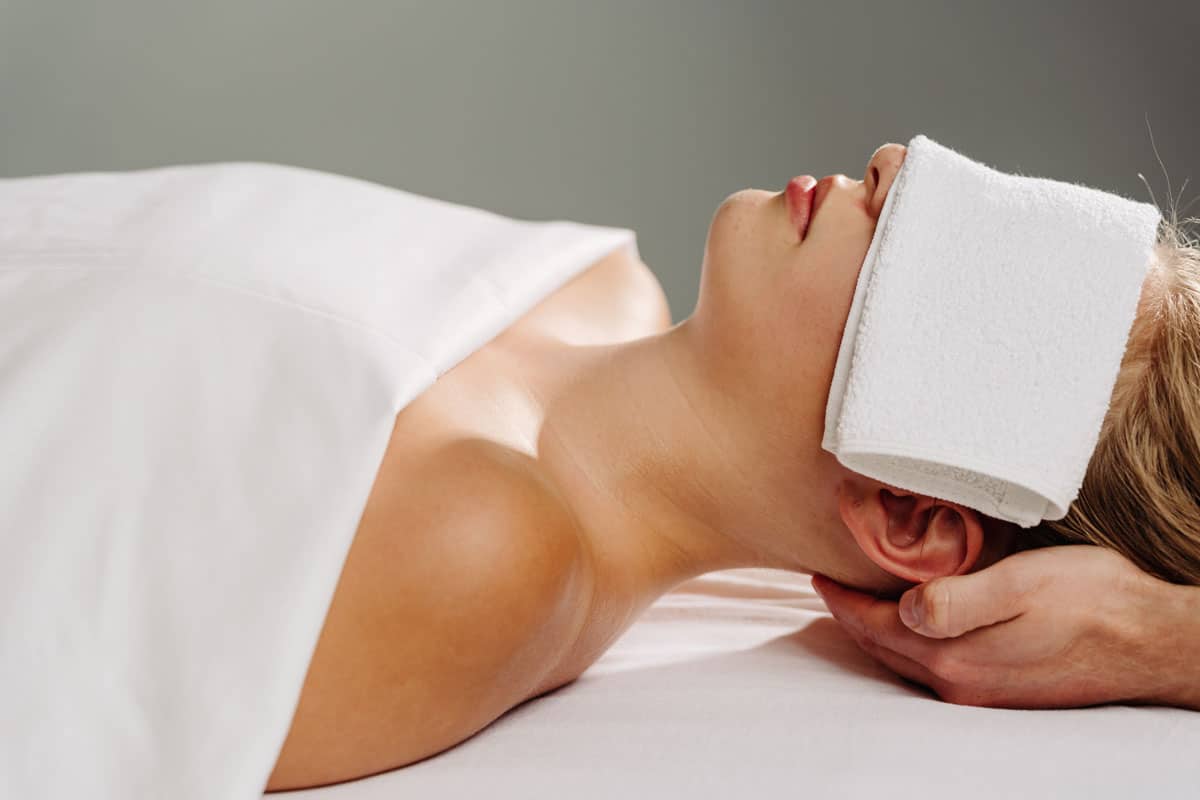Temporomandibular Joint (TMJ) dysfunction can cause pain, stiffness, and discomfort in the jaw, often affecting chewing, speaking, and overall well-being. TMJ massage is a specialized technique that helps relieve tension in the jaw muscles and improve joint function.
How TMJ Massage Works
TMJ massage focuses on relaxing and stretching the muscles around the jaw, face, and neck. One of the most effective techniques for treating TMJ dysfunction is Intraoral Massage, which involves working the muscles inside the mouth to target deep tension and restore proper alignment.
The technique works by:
- Releasing tension in the jaw muscles
- Improving blood circulation to reduce inflammation
- Enhancing jaw mobility and function
- Alleviating headaches and facial discomfort
Methods and Techniques
TMJ massage may include a variety of techniques tailored to the client’s specific needs. These techniques can be performed externally or internally.
- Intraoral Massage: A gentle technique where the therapist uses gloved hands to access and massage the jaw muscles from inside the mouth. This helps release deep-seated tension and improve alignment.
- Myofascial Release: Targeting trigger points in the facial and jaw muscles to alleviate pain and stiffness.
- Deep Tissue Massage: Applying firm pressure to relieve tension in the surrounding neck and shoulder muscles that contribute to jaw discomfort.
- Stretching Exercises: Gentle jaw movements to improve mobility and reduce clenching.
Benefits of TMJ Massage
TMJ massage offers a natural, non-invasive way to relieve symptoms associated with jaw dysfunction. Some of the key benefits include:
Pain Relief
Regular TMJ massage can help reduce:
- Jaw pain and stiffness
- Facial tension and discomfort
- Headaches and migraines caused by jaw misalignment
Improved Jaw Function
By releasing tension in the surrounding muscles, TMJ massage enhances:
- Jaw mobility
- Range of motion
- Bite alignment
Reduction in Teeth Grinding (Bruxism)
For individuals who clench or grind their teeth, TMJ massage can help relax the jaw muscles and minimize strain on the temporomandibular joint.
Stress and Tension Relief
TMJ dysfunction is often linked to stress and muscle tension. Massage helps calm the nervous system, reducing stress-related jaw clenching and facial tightness.
Is TMJ Massage Right for You?
If you experience jaw pain, clicking or popping sounds, frequent headaches, or difficulty chewing, TMJ massage may be an effective solution. Our trained therapists can assess your condition and customize a treatment plan to help restore comfort and function.
